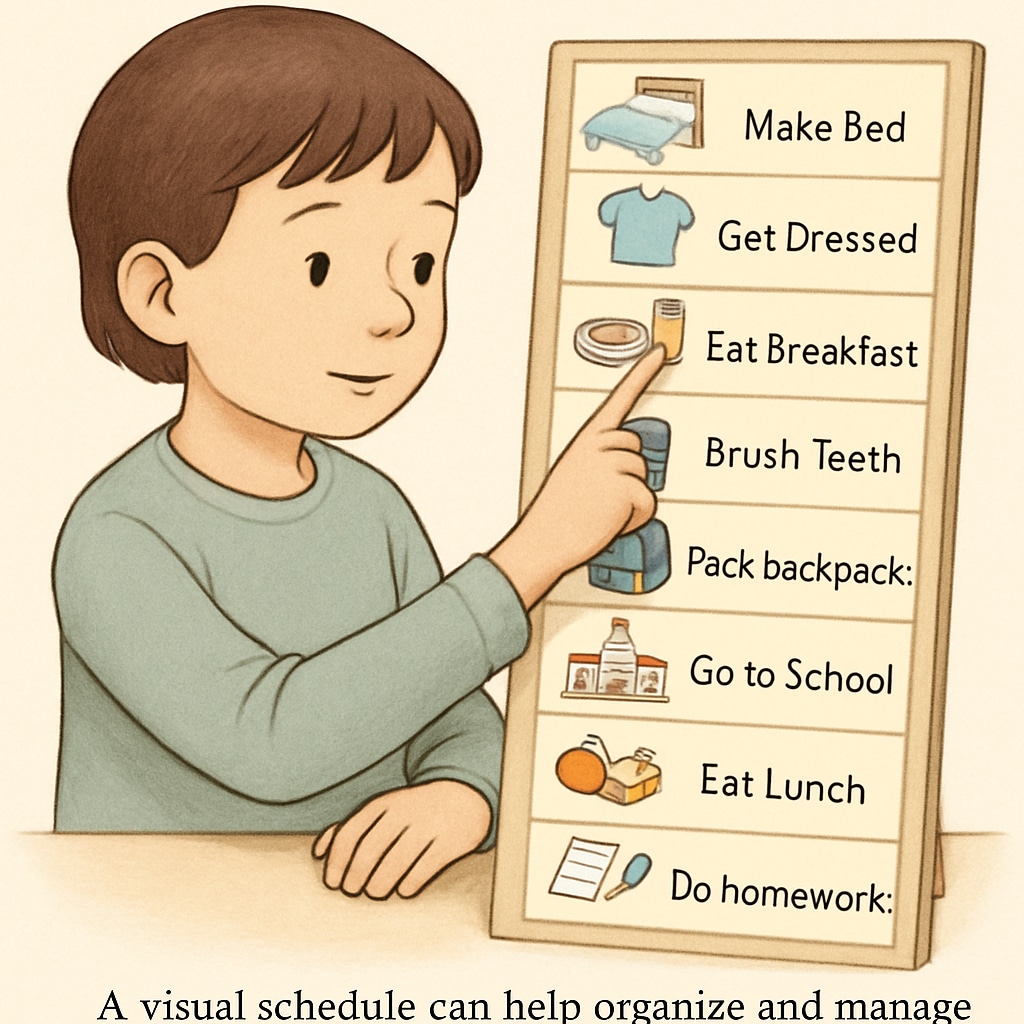Children with special needs, such as ADHD (Attention-Deficit/Hyperactivity Disorder) and ASD (Autism Spectrum Disorder), often experience challenges in developing executive function skills. These essential cognitive abilities include planning, time management, emotional regulation, and problem-solving, which are critical for academic and social success. For parents navigating the complexities of special education, understanding how to foster these skills can make a profound difference in their child’s growth. This article provides actionable strategies for executive function development and offers a comprehensive support framework for parents.
Understanding Executive Function Challenges in ADHD and ASD
Executive function is a set of mental processes that enable goal-directed behavior. For children with ADHD or ASD, these skills may be underdeveloped, leading to difficulties in staying organized, managing time, or regulating emotions. For example, a child with ADHD might struggle to focus on completing a task, while a child with ASD may find it challenging to adapt to changes in routine. Recognizing these challenges is the first step in providing effective support.
Moreover, research highlights that executive function deficits are often linked to neurological differences in the brain. As a result, interventions must be tailored to each child’s unique needs. This can include structured routines, visual aids, and positive reinforcement techniques to address specific deficits.

Key Strategies to Build Executive Function Skills
Building executive function skills requires a multi-faceted approach, combining structured techniques with emotional support. Below are some effective strategies:
- Structured Routines: Consistency helps children understand what to expect and reduces anxiety. Use visual schedules or checklists to outline daily tasks.
- Time Management Tools: Timers and alarms can teach children to allocate time effectively. Break tasks into smaller, manageable steps to help them stay on track.
- Emotion Regulation Activities: Teach breathing exercises or mindfulness practices to help children manage frustration and improve focus.
- Problem-Solving Practice: Role-play scenarios that require decision-making, encouraging children to think critically and explore potential solutions.
- Positive Reinforcement: Reward systems, such as token charts, can motivate children to complete tasks and develop new habits.
By implementing these techniques, parents can create a supportive environment that nurtures their child’s executive functioning abilities.
The Role of Parents in Supporting Special Needs Children
Parents play a pivotal role in fostering executive function development. Their active involvement not only provides emotional security but also reinforces the skills learned through structured interventions. Here are practical ways parents can support their children:
- Modeling Behavior: Demonstrate organizational skills, such as making to-do lists or managing a calendar, to serve as a role model.
- Collaborative Goal Setting: Work with your child to set achievable goals and celebrate milestones together.
- Open Communication: Encourage your child to express their feelings and challenges, helping them develop self-awareness and emotional intelligence.
- Utilizing Resources: Seek the guidance of specialists, such as occupational therapists or special education professionals, to tailor strategies to your child’s needs.
- Creating a Support Network: Connect with other parents or support groups to share experiences and learn additional strategies.

Final Thoughts: Empowering Independence
Developing executive function skills in children with ADHD or ASD is a gradual process that requires patience, consistency, and collaboration. By employing structured strategies and fostering a supportive home environment, parents can empower their children to overcome challenges and build greater independence. These efforts not only enhance academic performance but also contribute to improved social interactions and emotional well-being.
For further reading on executive function and its role in child development, visit authoritative resources like Executive Functions on Wikipedia or Executive Function on Britannica.
As parents and educators work together, the potential for children with special needs to thrive becomes increasingly attainable. With the right tools and strategies, every child can achieve their unique potential.
Readability guidance: Utilize short paragraphs and bullet points to summarize key ideas. Maintain an active voice and ensure transitions connect ideas smoothly.


